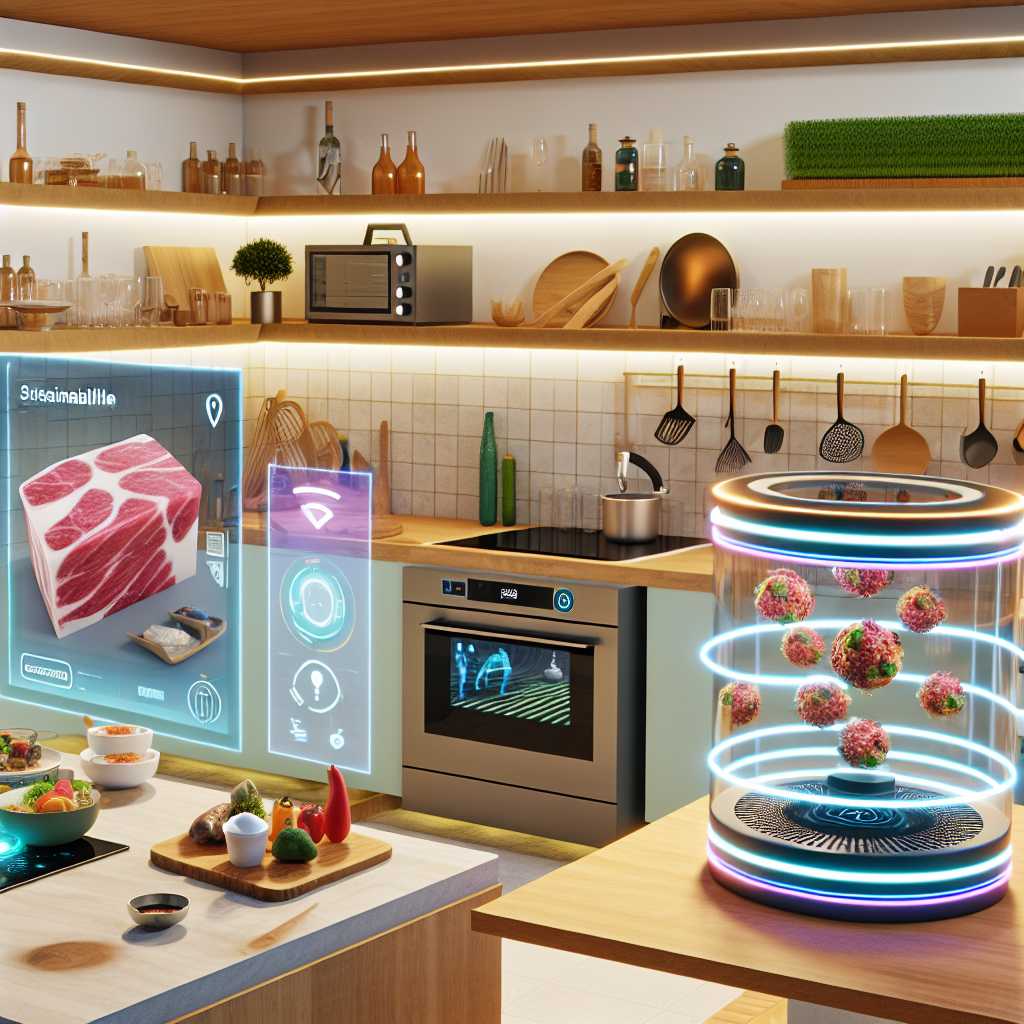From the alchemic transformations of our ingredients in a heated pan to the molecular gastronomy techniques that delight our senses, cooking has always been a blend of art and science. However, as we forge deeper into the 21st century, technology is playing an increasingly transformational role in the culinary world.
Technology Meets the Kitchen
With the rise of smart technology, our kitchens are becoming hyper-connected hubs of culinary innovation. Smart ovens, which adjust cooking times and temperatures automatically, promise perfectly cooked dishes every time. Induction cooktops controlled via smartphone apps evoke images of a future once only imaginable in sci-fi.
3D food printing is another groundbreaking innovation that is starting to take hold. This science-fiction-turned-reality opens up a realm of possibilities, from creating intricately designed edible art to improving nutritional value and texture in foods built layer by layer. Imagine printing out the perfect architectural masterpiece of a cake or crafting nutrient-rich meals tailored to individual dietary needs.
AI and Machine Learning: New Sous Chefs
Artificial intelligence has stepped into the role of sous chef, guiding amateur chefs and seasoned professionals alike with personalized culinary advice. AI-powered platforms analyze flavor profiles, suggest ingredient swaps in real-time, and provide tutorials adapted to skill levels, thus demystifying complex recipes.
Imagine the simplicity of customizing a menu based on guests’ preferences and dietary restrictions, all curated by AI. Furthermore, machine learning algorithms are being leveraged to predict future food trends and assist with inventory management in large-scale food operations.
Ethical and Environmental Considerations
Beyond convenience and creativity, technology in cooking also addresses sustainability issues. For instance, AI systems are used to minimize food waste in restaurants by optimizing inventory and predicting purchasing needs with high accuracy.
Moreover, advancements in lab-grown meat offer an ethical alternative to traditional livestock farming. This technological leap could drastically reduce the carbon footprint associated with animal agriculture, contributing to a more sustainable future.
A New Era of Culinary Arts
As technology continues to evolve, it blurs the lines between chef and tech enthusiast, creating a collaborative space where innovation and tradition coexist. The marriage of culinary arts and technology not only enhances our cooking experiences but also serves as a medium for addressing global challenges related to food and sustainability.
As we move forward, embracing these technologies holds promise for a culinary future that is not only innovative and delicious but also sustainable and inclusive. Whether you’re a professional chef or a home cook, the future of cooking welcomes you to explore its endless possibilities.


Leave a Reply